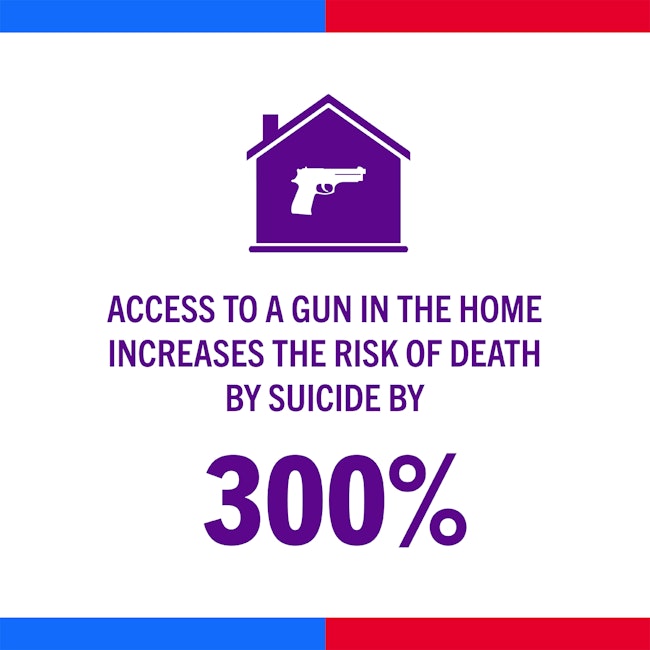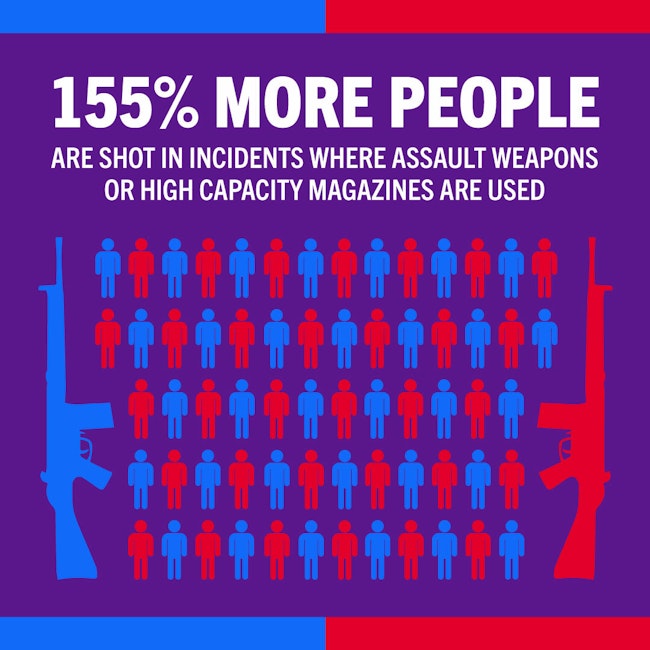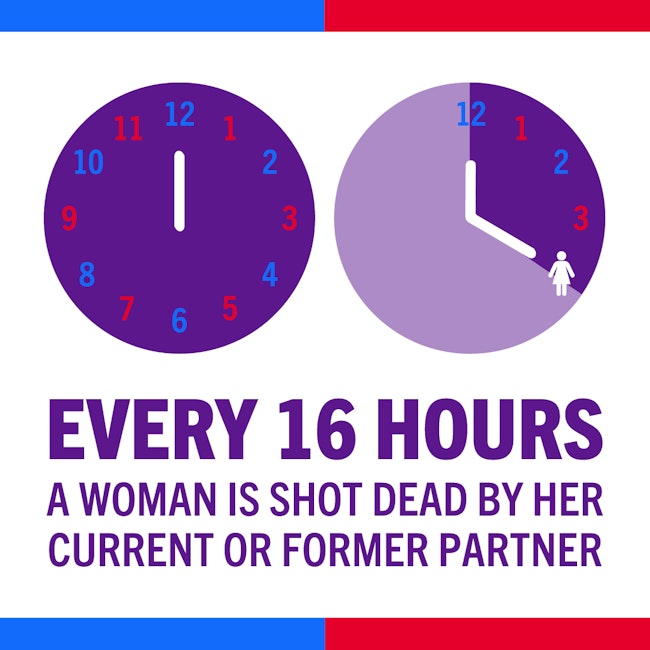Gun Laws, Loopholes, and Violence
In 1993, President Clinton signed the Brady Bill, which implemented the national system of Brady Background Checks on gun sales. Since enacted in 1994, there have been over 300 million Brady Background Checks, stopping approximately 4 million firearm sales to prohibited gun purchasers. Brady Background Checks have saved countless lives.
Background Check Loopholes
But as effective as the original Brady Bill has proven to be, there are still several loopholes. Because of gun shows, private sales, and online sales, one in five gun sales today are conducted without a background check. As a result, guns often fall into the wrong hands. Yet, more than 90 percent of Americans agree that anyone who buys a gun — no matter where or how — should go through a Brady Background Check. The will is there—and we will make a way.
Online Gun Sales
First, we must close the online sales loophole. The internet was in its infancy when Congress passed the Brady Bill. Now, online shopping has drastically changed how Americans buy and sell products. Today, unlicensed dealers sell guns online: unregulated and unchecked. If we are to make progress in ending gun violence, we need gun laws that address this reality.
The "Gun Show Loophole"
Second, we must close the gun show loophole. Gun shows are public events where vendors, licensed and unlicensed alike, sell guns at community venues such as fairgrounds or civic centers. The “gun show loophole” refers to the fact that federal law does not require unlicensed private sellers to perform background checks on gun purchasers, so those sales are unregulated unless state law steps in to fill the gap. The existence of this loophole increases the likelihood of guns getting into the hands of those who otherwise wouldn’t pass a Brady Background Check. The 117th Congress is working to close these loopholes through the introduction of H.R. 8: The Bipartisan Background Checks Act.
The "Boyfriend Loophole"
Third, we need to close the so-called “boyfriend loophole.” The "boyfriend loophole" refers to the fact that federal law only considers individuals who were at one time married to, have a child with, or are a parent/guardian of a victim, as domestic abusers prohibited from buying a firearm. Meanwhile, unmarried partners and stalkers aren’t considered prohibited persons under the law. Yet, there's a 500 percent increase in the likelihood of homicide if a gun is available during a domestic abuse situation.
Predictably, the "boyfriend loophole" has deadly costs. Roughly every 16 hours, a woman is shot and killed by a current or former intimate partner. In 2018 alone, there were 653 gun-related domestic violence fatalities in the United States. We're calling on Congress to pass the Violence Against Women Reauthorization Act of 2021 (VAWA) to close the deadly "boyfriend loophole" to help keep guns out of the hands of convicted domestic abusers and stalkers.
The "Charleston Loophole"
Fourth, we need to close the “Charleston Loophole.” This loophole references the 2015 mass shooting and hate crime that killed nine Black worshippers at the Emanuel African Methodist (A.M.E) Episcopal Church in Charleston, S.C. The shooting exposed an area of weakness in our federal gun laws. Although federal law prohibited the AME Church shooter from possessing a firearm, the so-called “Charleston Loophole,” under which federal law allows dealers to automatically transfer a firearm to a purchaser in three business days if the purchaser’s background check isn’t completed, nonetheless enabled the AME Church shooter to acquire his gun. The 117th Congress has the chance to pass H.R. 1446: the Enhanced Background Checks Act, to address the deadly "Charleston loophole."
Hate Crime Loophole
Fifth, we need to bolster our gun laws to address hate crimes. Hate crimes are on the rise: in 2020 hate crimes rose to the highest level since the FBI began tracking such incidents in the 90s. But, even as hate crimes rise, our country’s capacity to prevent and address such incidents has lagged; today, only seven states prohibit people convicted of a hate crime misdemeanor from owning a gun. Many will plead down to a hate crime misdemeanor from other charges to prevent losing their right to own a firearm. Congress must take action to address the intersection of guns and hate.
Patchwork Gun Laws Across the Country Have Led to Violence
Finally, we must address the ways that states with more permissive gun laws can facilitate gun violence across the country. While some municipalities and states have very strict gun laws, they may border states and municipalities with more lenient gun laws. This allows traffickers to move guns from lax states to strict states. Indeed, data shows that 90 percent of the guns used in crimes come from roughly five percent of licensed gun dealers. t Therefore, focusing on the most problematic dealers would prevent a great deal of crime. And yet, the gun lobby has convinced Congress to pass the Tiahrt Amendment to keep the public from knowing who those problematic dealers are.
Brady calls on Congress to repeal the Tiahrt Amendment so communities can identify and try to reform dealers who are willingly taking advantage of loopholes and flooding our streets with crime guns.







